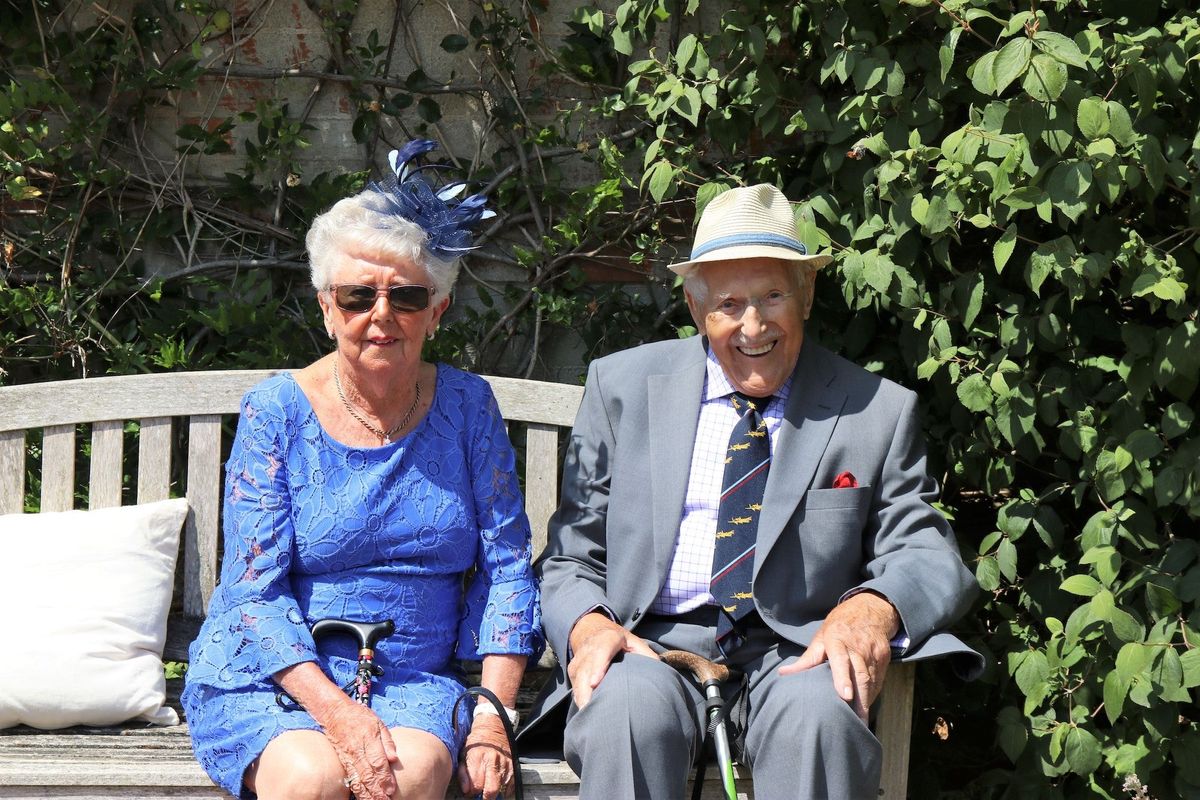How to Reminisce with an Aging Loved One
Explore several options on how to reminisce with an aging loved one. Seniorly can help with suggestions on how to reminisce in ways that work best for everyone involved.

As they age, our loved ones start to reminisce more and more. Whether it's stories about their childhood or funny moments from when they were younger, reminiscing is a great way for us to learn more about them and their life. Listening to these stories is also a wonderful way to learn more about and connect with our aging loved ones, and to show them that we care about them. Furthermore, we get the opportunity to learn about their life, what they value, and how they see the world.
What is Reminiscence Therapy?
Reminiscence Therapy (RT) is a unique approach that helps people with dementia remember and reconnect with earlier periods in their life by using all five senses. The process doesn’t involve trying to remember specific events or dates, but instead sharing pleasant memories as they emerge.
There is promising, but not definitive, research suggesting that life review therapy can improve cognition, mood, and general behaviors among dementia patients. Research provides some evidence that RT is effective in improving mood in older people without dementia.
How does Reminiscence Therapy work?
Reminiscence therapy can be helpful in dealing with chronic health conditions such as dementia, Alzheimer’s disease, or other memory loss issues because it stimulates brain activity and promotes the recreation of memories, potentially allowing people to think about and re-experience their past more fully than they could otherwise.
Reminiscence sessions may be formal, informal, one-on-one, or in a group setting. RT works by bringing families together with their loved ones with dementia and allowing them all to reminisce together about the past and life stories. Caregivers, family members, or family caregivers may use objects such as clothes, furniture, songs, or other types of items to touch from the past that will help older adults recall memories from when they were younger. In an ideal setting, the past and pleasant memories become the main focus of the session, rather than any limitations they might experience as a result of their condition.
The benefits of Reminiscence Therapy for seniors
Reminiscence therapy is an important tool for helping people with dementia to share and experience positive memories from the past, rather than trying to force them to remain in the present. RT can help dementia patients:
- Regain personal identity
- Feel understood and connected
- Understand and process their changing world
- Cope with common feelings like anxiety and fear
- Improved ability of verbal expression and increased socialization
- Express needs and feelings more effectively with caregivers or care managers
- Share important family stories and history with loved ones
7 tips for reminiscing with an aging loved one
Here are some tips to keep in mind as you reminisce with your aging loved one. You can ask about their happy memories and past experiences to start some great conversations.
Create a space for sharing. Turn off the tv and put away the cell phone. Give your loved one your full attention away from any noise and distractions. Look for a space that feels both safe and familiar, as this will make it easier for them to reminisce without stress or any distractions.
Stick to open-ended questions. Ask about their first job, their favorite food, their first car or their first date. Memories that have been frequently accessed are easier to recall.
Ask about specific memories. You may notice that those with memory issues will repeat the same story again and again. Take advantage of those well worn memories and dig deeper, asking questions to uncover parts of the story you might not have heard.
Use all five senses when reminiscing. If verbal acuity is not strong, try appealing to other senses. A worn apron, a favorite baseball hat or the scent of cinnamon may provide the spark for a story. Some might even put on a favorite movie or music to provide a prompt for conversation.
Let your loved one lead the conversation. Don't try to take over their memories. Be patient and let your loved one guide the experience. Don't try to force any answers as this may cause anxiety for your loved one. Don’t worry if you don’t get every answer you want. You can always try at a different time to hear more of their memories.
Consider recording your conversations. This will allow future generations to listen to your loved one's history and memories. We particularly love the service of Storyworth, which creates an heirloom book out of stories told. It’s a particularly great tool for connecting grandparents to their grandchildren.
Always end on a positive note. Make sure to say thank you and let your loved ones know how grateful you are for their time and for sharing their memories.
Remember, you don't need to know all the answers and your loved one is not always going to be able to respond quickly and easily. Just try to make it fun and enjoy each other's company while reminiscing.
15 questions for reminiscence sessions
Not every topic fits every individual. Here are some suggested reminiscing questions for seniors that are vague enough for anyone to be able to answer.
- What was your first job?
- What was your first car?
- What is your favorite season?
- What is the best gift you ever received?
- Did you ever face any hardships growing up?
- When did you meet Grandma/Grandpa? Do you remember where?
- What did your house look like fifty years ago?
- What are the most important lessons you have learned in life?
- What was your favorite food growing up?
- What are you most proud of?
- Who has made the biggest impact on your life and why?
- Tell me more about your parents. Who are you most similar to?
- Where have you traveled?
- Who do you admire?
- How would you like to be remembered?
Reminiscing with an aging loved one can be a beneficial form of therapy, providing comfort and support to those who are suffering from Alzheimer's or other forms of dementia. By engaging in conversation about cherished memories, individuals with dementia can recall their personal histories. If you have an elderly loved one who is struggling with memory loss, consider trying some of the tips we've shared for reminiscing together. Not only will it provide much-needed comfort, but it may also strengthen your bond in ways you never thought possible.
Works consulted:
Marlena del Hierro earned her Master of Arts degree in Gerontology from San Francisco State University and her Bachelor of Arts degree in Human Development from California State University. She also serves in an advisory capacity for Jukebox Health. Marlena is a vocal advocate for evolving the aging paradigm, and is a frequent contributor to public discussions about aging. She has served as a resource for media outlets like WGBH, FOX News, CNBC and the Today Show.
To learn more about Seniorly's editorial guidelines, click here.
Sign up for our Healthy Aging Handbook
Seniorly’s Senior Living advisors created a comprehensive handbook to help people age happily while ensuring they love where they live. Enter your email address below to receive your copy and learn more about Healthy Aging and Senior Living.*
*By submitting your email address above, you consent to receive occasional email communications from Seniorly, including educational content and tips, newsletters, and other relevant updates and offerings. You can unsubscribe at any time and we will never sell or distribute your email address to a third party. You can view our Privacy Policy here.
